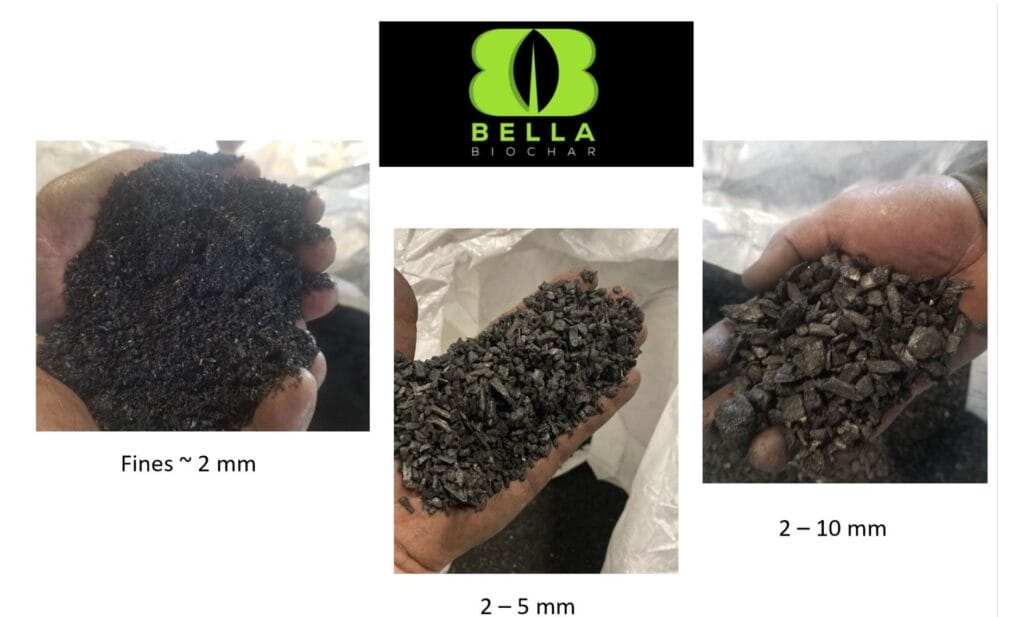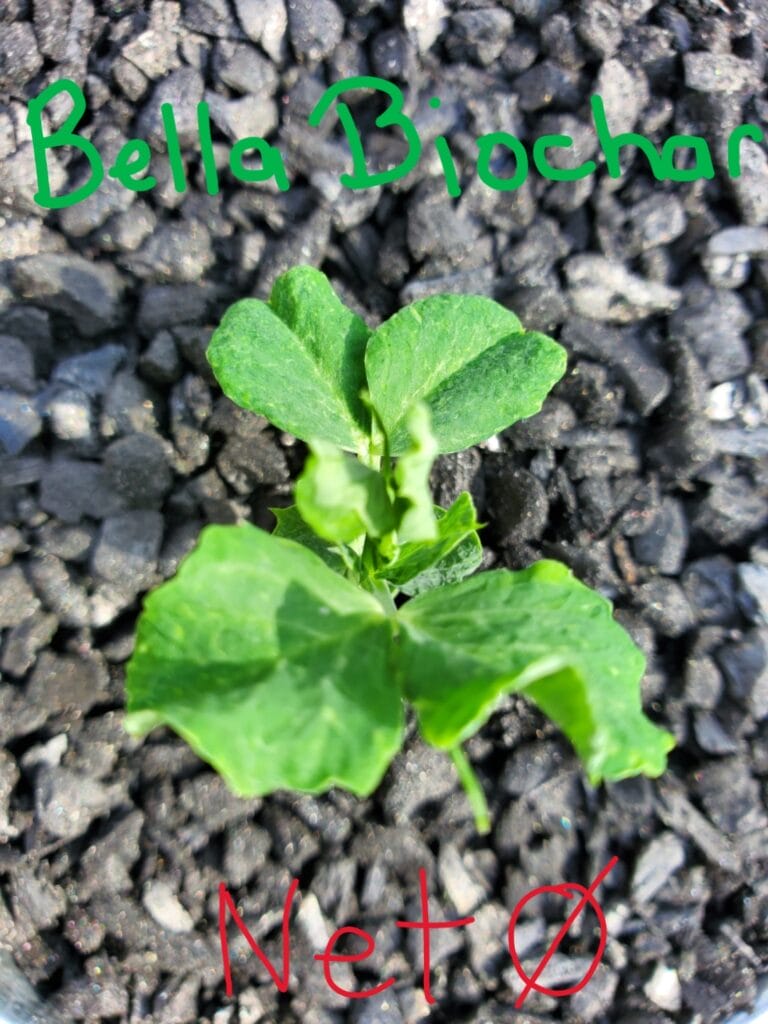Recent years have seen an increased focus on carbon removals – carbon solutions that draw carbon out of the atmosphere, thereby helping rebalance the global carbon budget. In fact, a recent IPCC report confirmed that carbon reduction is no longer sufficient to avoid the worst effects of climate change, and that carbon removals will be critical for this effort.
Some businesses have taken this warning to heart. Last year, companies including Shopify, Meta and Stripe launched the Frontier initiative, a commitment to invest heavily in carbon removals in order to bring the technological cost curves down.
Thallo also recently announced an integration with Puro.earth, whose Puro Standard is the world’s first carbon standard for engineered carbon removal.
But what do we mean when we talk about carbon removal? And what are the different types?
Today, we’ll dive into one burgeoning carbon removal methodology: biochar.

Biochar is a product that comes from heating biomass at high temperatures to create a soil amendment. When applied to soil, it sequesters the carbon locked inside it, while offering additional benefits such as increased soil health and higher crop yield.
Bella Biochar is one of the very first project developers to have its carbon removal credits bridged onto the blockchain via Thallo’s two-way carbon bridge.
We sat down with Jodi Formosi, CEO of Bella Biochar, to learn more.
Thallo: What is biochar? How does it remove carbon from the atmosphere?
Jodi Formosi, Bella Biochar: Bella Biochar is the only Canadian, commercial scale manufacturer of a non-pyrolytic, Certified Organic, natural carbon solution that is made from landfill diverted wood waste.
Due to a highly stable carbon content of over 85%, when Bella Biochar is applied as a soil amendment/supplement, the majority of carbon remains locked in the solid material for centuries. Carbon sequestration refers to this process of storing carbon in biochar and thus removing carbon dioxide from the atmosphere.
Every metric ton of Bella Biochar results in a net carbon removal of approximately 3 metric tons.
Thallo: What’s the story of Bella Biochar?
Bella Biochar: Bella Biochar is truly a Cinderella Story. As the granddaughter of European Peasant Farmers, I learned from my grandparents, at an early age, about the significant relationship between people and the planet.
For my Ukrainian Grandmother, her garden was not only her sanctuary but also instrumental for providing the ingredients of her famous dill pickles, fresh raspberry treats and prize worthy roses. My Italian Grandmother, who always called me “Bella”, relied on her prized tomato patch to prepare pasta sauce for the family. They both taught me that if we expect the earth to provide for us then we have to reciprocate.
I combined that mantra with my experience as a Waste Solution Consultant who was frustrated with the large amount of wood waste being unnecessarily landfilled, and began addressing the gap for Premium Quality Biochar and Carbon Dioxide Removal in the global marketplace.

Determined to build a company on scientifically substantiated research and development, Bella Biochar Corporation became a member of the Natural Sciences and Engineering Research Council of Canada in 2019, by establishing a Collaborative Industry Partnership with the University of Western Ontario.
Under the guidance and support of Dr. Franco Berruti, NSERC Industrial Research Chair in “Thermochemical Conversion of Biomass and Waste to Bioindustrial Resources”, the first lesson learned was that not all biochar is created equally.
The raw material base used and the temperature that the material is heated in, and then cooled at, changes the chemical composition of the biochar. As a pioneer in the manufacturing of premium quality biochar, using a non-traditional process temperature that is double that of typical pyrolytic biochar, the Bella Team then began conducting the rigorous research and development necessary to determine optimal feedstock intake and manufacturing protocols.
Ultimately, the Bella Team succeeded at producing a cleaner, purer, biochar with consistently high carbon content and with proven superior porosity and adsorption properties compared to that of Activated Carbon.
Thallo: What makes Bella Biochar unique in the carbon removals space?
Bella Biochar: Bella Biochar is unique in a number of ways:
1. Bella Biochar is proudly the first Female Founded Corporation for biochar in the world, and the first Canadian Corporation to achieve PURO.Earth Carbon Removal Certification.
2. Bella Biochar’s purity, quality, net carbon removal and permanence are notably and measurably high
Thallo: What are the co-benefits of biochar?
Bella Biochar: Bella Biochar offers a multi-pronged solution both as a natural soil input and a natural carbon solution while providing a significant number of additional eco-benefits for people and planet:
– Landfill diversion of wood waste
– Aversion of biomass carbon release from forest debris
– An eco-protective option/addition to peat moss and fertilizer
– Reduced drought risk/increased moisture retention in soil
– Increased microbial growth/nutrient delivery to plant roots
– Reduced germination period
– Increased crop/dairy yields
– Reduced spread of Zoonotic disease/need for antibiotic use/methane production (when fed to livestock)
– Remediation/filtration/amendment for air, water, soil including mine reclamation

Thallo: What do you see as the biggest barriers blocking greater scaling of biochar and other carbon removal solutions? And what needs to change to overcome these barriers?
Bella Biochar: The first significant barrier to scaling natural carbon solutions is a lack of political support/funding for nature based solutions combined with a lack of understanding and/or a general disregard for basic environmental science. By adding Bella Biochar to soil for carbon sequestration / climate resilience it helps restore degraded soils, which improves agricultural productivity through healthier soils that in turn require less fertilizer and that are more adept at both droughts and heavy rainfall.
Bella Biochar diverts wood waste from landfill, reduces the need for fertilizer and other chemicals in our food supply and simultaneously helps mitigate both food insecurity and climate change. It is the most sensible and environmentally responsible solution to many problems.
The second barrier to the scaling of carbon solutions is the distrust in the industry that is being created by green washing/hushing. Understandably, funders are hesitant and in some cases resolute about not investing in biochar and/or carbon removal due to the perceived lack of science and transparency. Both the voluntary and compliance carbon markets, in addition to the biochar market, require clearly delineated regulations that insure scientifically quantifiable criteria and standards.
Once those are established, then more education and better understanding about the various quality levels of both biochar and carbon removal will correct the misinformation currently circulating. This will result in more stable markets for both biochar and carbon removals versus the speculative.
Thallo: Why are you excited to partner with Thallo?
Bella Biochar: It makes for a perfect pairing since Thallo describes itself as “Tomorrow’s Carbon Market” and symbiotically, Bella Biochar embodies the future, forward thinking biochar and carbon removal markets.






